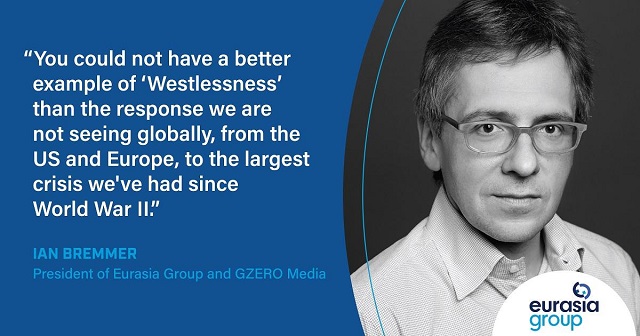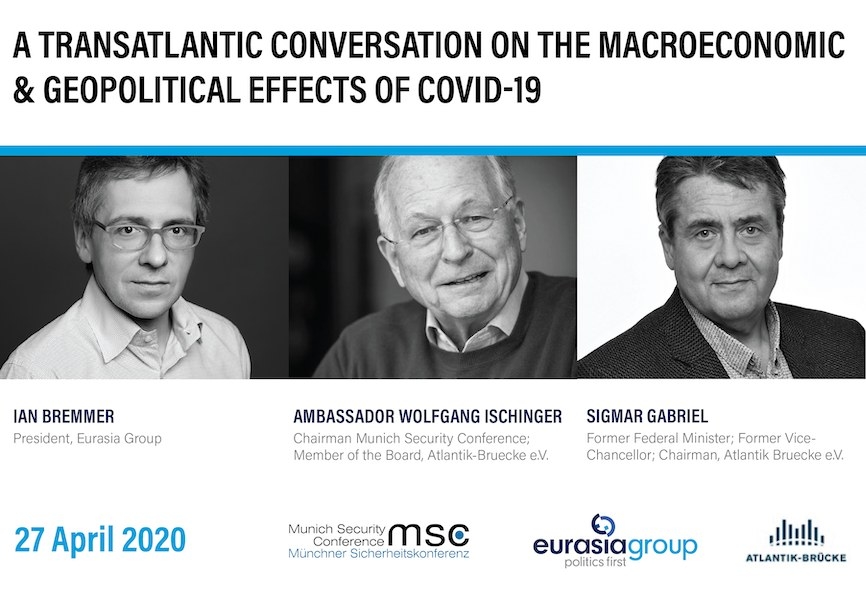From global trade to the durability of the international order,
coronavirus is reshaping the world across borders and sectors. On 27 April 2020, Eurasia Group joined the
Munich Security Conference and
Atlantik-Brücke to co-host a transatlantic virtual discussion on the geopolitical and economic impact of the Covid-19 pandemic. Featuring Eurasia Group President and founder
Ian Bremmer, Munich Security Conference Chairman and former German Ambassador to the United States Wolfgang Ischinger, and Atlantik-Brücke Chairman and Eurasia Group Senior Advisor
Sigmar Gabriel, the event gathered selected participants from politics, think tanks, business, and the media.
 Europe
Europe's role was a recurring theme, as participants assessed the continent's capacity to collectively address the pandemic. Ambassador Ischinger expressed cautious optimism, suggesting that if member states can overcome the urge to limit their responses to the national level, the crisis might serve as a wake-up call that helps “create a European Union that will be more capable of being a credible international actor."
Arguing that the pandemic is amplifying already existing challenges facing the continent, Gabriel compared the virus to a “giant magnifying glass everywhere, showing us all the cracks and frictions that have been there before." He, too, expressed confidence in the European Union's ability to weather the storm, pointing to the "invisible glue holding Europe together when things get really serious."
Looking beyond Europe, Bremmer, Ambassador Ischinger, and Gabriel turned to Covid-19's implications for global cooperation and US domestic politics. Ambassador Ischinger said he sees the largest challenge as re-strengthening “an international order which is fraying at the edges.” This effort will require supporting international dialogue through formal and informal exchanges between decision-makers.
Bremmer cautioned that political fragmentation in the United States will only get worse as the presidential election draws nearer this fall. He forecast a “deeply ugly political situation” building in the US around a
potentially delegitimized November election and warned of continued deterioration in
US-China relations.
Learn more:


